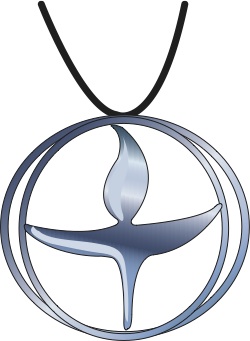
My child came home wearing a cross
Eventually I discovered that it was not given to him by anyone, but found on the playground at recess. This gave me an “out”: I explained that someone who lost it might be sad and suggested that we return it to the school’s Lost and Found. But I recognized that deeper issues were at stake here. This wasn’t just any pretty piece of jewelry that he coveted for himself. It was a cross, a symbol of Christian belief, and an item my son wanted to wear on his body as decoration.
Now I had to wonder: Did he understand the symbolism of wearing the cross? If he did not understand what the cross symbolized, then I had failed to instill in him respect for other faith traditions. Donning the religious symbols of other religions in order to be fashionable or “cool” shows disrespect for the sacredness of another faith tradition’s beliefs. If he did understand what the symbolism meant, then I had also failed to instill in him a strong identity as a Unitarian Universalist who respects the symbols of others but understands his own.
Recognizing that the elementary years are an important step in the faith development process, I was able to step outside of the guilty-parent mode and remind myself that one of the tasks children his age need to establish is the ability to differentiate the symbols and stories which separate their religion from the religions of others. Perhaps I hadn’t so much failed as ignored the process we were still working through. Maybe what he needed was his own religious symbol, and perhaps that was what he was really seeking when he found the cross necklace on the playground.
So I dug through my jewelry box and found the chalice my daughter used to wear, now somewhat tarnished and scratched from years of wear. I shined it up a bit, put it on a chain, and gave it to him. Now he wears it proudly around his neck, perhaps even more proudly than he ever would have the cross, because he has a deeper connection to this symbol of faith. He has stood up in front of his church and lit the chalice during a worship service and in his religious education classroom. He also recognizes that I wear my chalice necklace every day, and he is happy that he has a necklace just like I do. This symbol is his symbol, his family’s symbol, his religion’s symbol, and it means more to him because of this.
Have you faced a similar situation with your children? Did you want to wear a cross when you were growing up and thought your parent(s) wouldn’t approve? If you are a Unitarian Universalist Christian, would you feel comfortable wearing a cross to church? What does it mean when we choose to make a statement and hang a religious symbol around our necks?
Image (above) Chalice necklace by Bob Delboy







